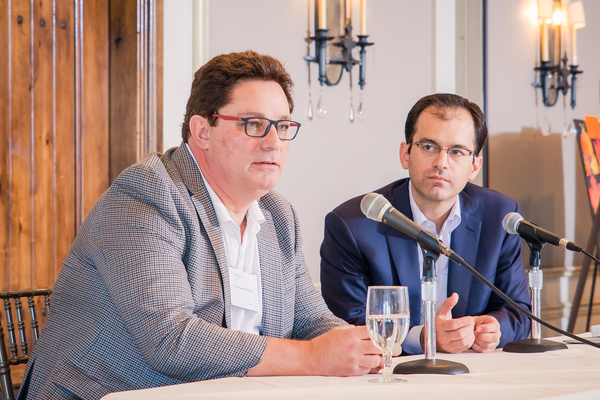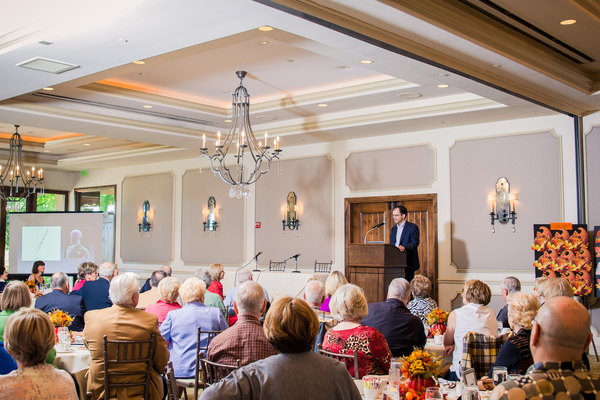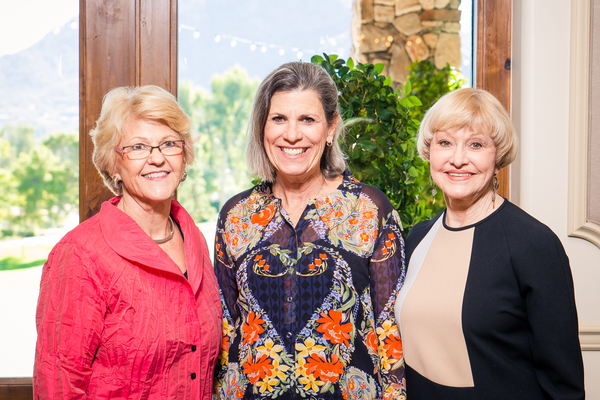Dr. Francisco Ponce, M.D. and Dr. Alexander Troster, PhD, from the Barrow Neurological Institute in Phoenix, Arizona were on hand at the annual Fall Benefit Speakers Series to present an update on Alzheimer’s Disease. 
First and foremost, Dr. Troster thanked ARCS for their contributions to advancing scientists in the US as Alzheimer’s disease is a major public health issue, affecting one person about every 6 minutes with a total of 6 million cases in the world today. It is one of the 10 top diseases that is without a method to prevent, cure or slow the process.
 The disease usually follows a general progression of symptoms beginning with difficulty of episodic memory and slow word finding. The loss of memory is not necessarily about past events of life but the ability to remember day to day things and people/directions, etc. As the disease progresses, the person will experience difficulty with visual perception, established knowledge or semantic memory, frank aphasia, increasing behavioral changes, and difficulty with problem solving, among other symptoms. In the late stages the person is left with difficulty in interacting with the environment and functional dependence.
The disease usually follows a general progression of symptoms beginning with difficulty of episodic memory and slow word finding. The loss of memory is not necessarily about past events of life but the ability to remember day to day things and people/directions, etc. As the disease progresses, the person will experience difficulty with visual perception, established knowledge or semantic memory, frank aphasia, increasing behavioral changes, and difficulty with problem solving, among other symptoms. In the late stages the person is left with difficulty in interacting with the environment and functional dependence.
Testing of spinal fluid, identifying genetic biomarkers, brain scanning to visualize structural changes, and other tests, prove helpful in identifying the disease in its earlier stages. However more research is needed to discern early diagnosis, a key to treatment. Clinical trials aimed to reduce or ameliorate symptoms, prevent cognitive changes or to delay the onset of the progression of the disease are expensive but critical in advancing research in this area. Deep brain stimulation is also being studied as a tool to assist in slowing the progression of the disease by stimulating increased connectivity in parts of the brain  dealing with memory.
dealing with memory.
Although much more research is needed, reducing the risk factors can be accomplished by providing education and cognitive reserve, socialization, adequate sleep, cognitive activity, exercise and proper nutrition for ourselves.
Thanks to Kathey Plenge and Sandra Seward for their efforts in arranging for this enlightening presentation and delicious brunch at the Paradise Valley Country Club.
